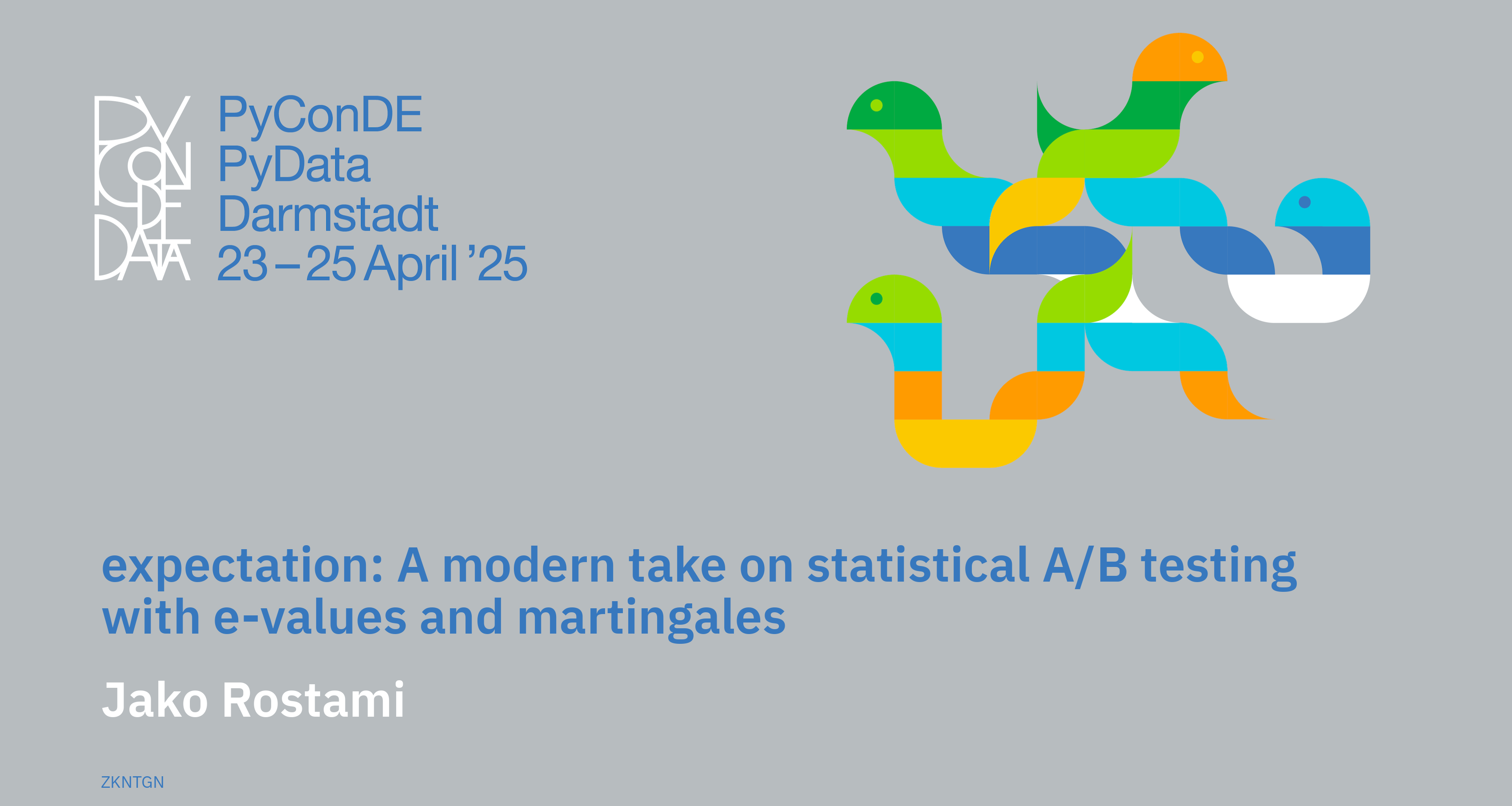Wednesday 12:25
in Helium3
Modern data science demands flexible statistical methods that can handle sequential data analysis and continuous monitoring. Traditional p-values, while widely used, have limitations when dealing with sequential testing scenarios. This talk introduces a Python library that implements e-values and e-processes, offering a more natural approach to measuring statistical evidence and enabling true sequential testing.
Outline:
- Statistical toolkit
- Current tools
- Purpose and fundamental concepts
- Challenges in modern statistics
- Type 1 error concerns
- Optional stopping problems
- Sequential testing
- Origins
- The concept of sequential testing
- Peeking
- e-values
- What are e-values?
- Definitions and concepts
- Betting interpretation
- Wealth process
- Ville's inequality
- Anytime valid inference
- p-value vs. e-value differences
- Python library
- Architecture
- Core components
- Installation and basic setup
Demo 1: A/B testing
Beyond A/B testing
- Broader applications
- Conformal e-testing
- Confidence sequences
Demo 2: It is a versatile library
Acknowledgments
Q&A Session
